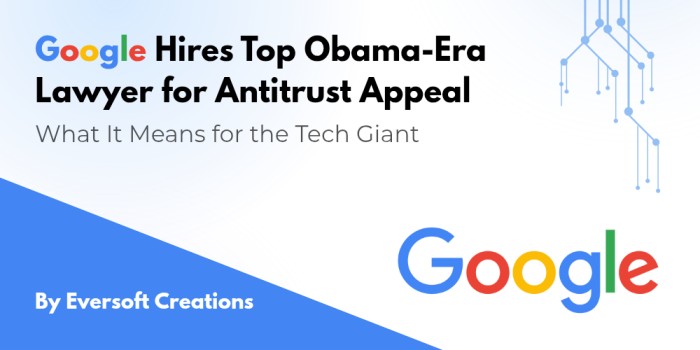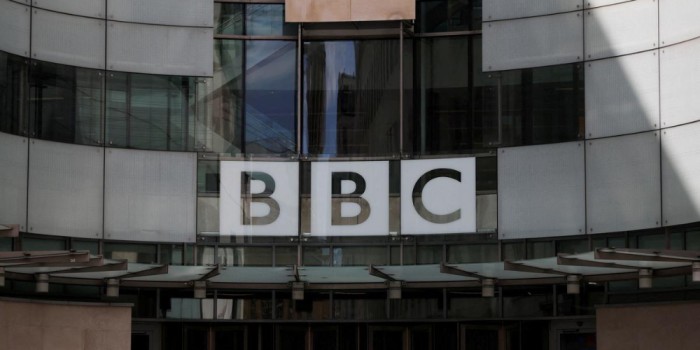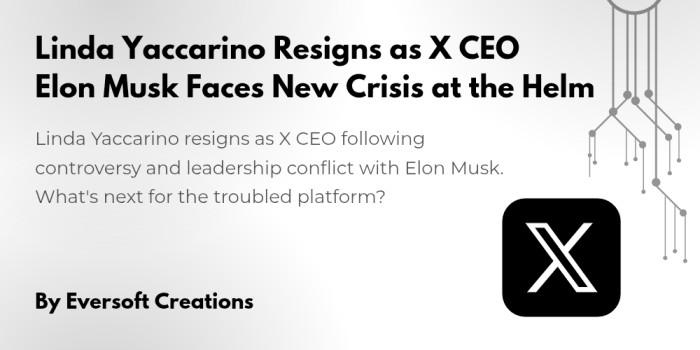Google has chosen former U.S. Solicitor General Donald Verrilli Jr. to lead its challenge to an important antitrust court decision. It demonstrates not only growing government oversight of Big Tech but also the beginning of a leading legal dispute that could change the digital economy.
The Background: Google’s Antitrust Battle
Google is accused by the U.S. Department of Justice (DOJ) and a variety of states in court of holding an illegal monopoly over the search engine market. As explained by the DOJ, Google worked out deals ensuring its search engine was the default for both device makers and web browsers in order to limit competition.
District Judge Amit Mehta ruled in favor of the group filing the lawsuit, saying Google’s actions in search and search advertising broke the law. Before knowing which remedies will be set, the case may result in significant changes to Google’s organization.
Why Donald Verrilli Jr.?
With a view to winning its case, Google has recruited Donald Verrilli Jr., a highly experienced lawyer who was the Solicitor General under Obama. The Affordable Care Act defense and ongoing arguments in significant cases before the U.S. Supreme Court make Verrilli well known. Because of his legal skill and background, he is valued in tough litigation situations.
While working for Munger, Tolles & Olson, Verrilli has often represented tech corporations and large financial institutions. His involvement shows that Google is serious about this appeal and expects the case might last a long time.
The Legal Stakes
The case will be handled in the U.S. Court of Appeals for the D.C. Circuit which is usually regarded as the second most important court, because it deals with federal regulations. The result of this case might guide how digital platforms are handled under antitrust laws going forward.
Important questions concerning law will be addressed such as:
- If Google had really done anything anti-competitive in their partnerships.
- If people were injured by not having enough options when searching in search engines.
- What should be done when a digital company dominates the market?
Impact on Google and the Tech Industry
If the court does not overturn the original judgment, Google might have to change its business approach greatly. Outcomes could be:
- Breaking up Business Units: Some of Google’s services, for example Chrome and Android, could be legally required to be split off from the company.
- Changing Default Settings: Users might need to be able to set their default search engine more easily.
- Revenue Loss: If Google does not control search distribution properly, the company could earn less from its ads which is its largest source of income.
Similar tech firms are carefully following what Meta does. A loss for Google might encourage regulators to go after Apple, Amazon, Meta and Microsoft in similar ways.
Google’s Defense Strategy
Google states that its actions are both allowed and good for consumers, as they receive accurate, fast and dependable search outputs. It explains further by pointing out:
- Consumers use Google because it’s the best—not because they are forced to.
- There is still competition in the search engine space (e.g., Bing, DuckDuckGo).
- Agreements with device manufacturers are standard industry practice.
Besides, facing such pressure, Google has revised the deals with partners such as Samsung so that they can add competing apps and services to their phone systems which displays Google’s readiness to adjust.
The Political and Public Dimension
People are increasingly questioning Big Tech, so lawmakers on both sides of politics have critiqued them for being monopolistic, invading privacy and moderating content.
Under Biden, the administration is focusing on antitrust and the FTC and DOJ have both stepped up their efforts to investigate and bring legal actions. This case will therefore show how well the government is able to oversee tech-related issues in modern times.
Global Implications
This is a problem that countries besides the U.S. are dealing with. Regulators from many countries are taking actions against Google. The company has been hit by fines from the European Union for violating antitrust rules. Likewise, India, Australia and Brazil have started independent investigations.
A decision against Google in the U.S. may encourage regulators in other countries and cause a rise in tougher regulations and enforcement across the globe.
Legal Timeline and What’s Next
It can take a lot of time, perhaps even years, for a case to move through the D.C. Circuit’s appeal process. This is what you can expect to happen:
- Briefing Period: Google and the DOJ will file legal briefs outlining their arguments.
- Oral Arguments: A panel of judges will hear oral arguments, likely sometime in the next 6-12 months.
- Ruling: A decision may come several months after arguments are concluded.
- Supreme Court?: Depending on the outcome, the case could be appealed to the U.S. Supreme Court.
What Should Businesses and Consumers Expect?
If Google is important to a business’s advertising or data, the uncertainty might prompt rethinking how they use these services. Some marketers start to spread their advertising budgets across platforms such as Bing Ads or Amazon Ads.
Users could notice new and more noticeable ways to select a search engine on their electronics. Doing this might make people aware of more options and encourage a wider variety of experiences online.
Final Thoughts
Employing Donald Verrilli Jr. shows Google is handling this case with seriousness. This marks a major departure for Google and for the whole tech industry. The results of this appeal could have legal, financial and social impacts on how tech companies function in the changing digital sector.
Either outcome in the case will help decide how antitrust law is handled in digital sectors going forward.
Visit Eversoft Creations for more tech-related updates, insights, and the latest news from the world of technology.



